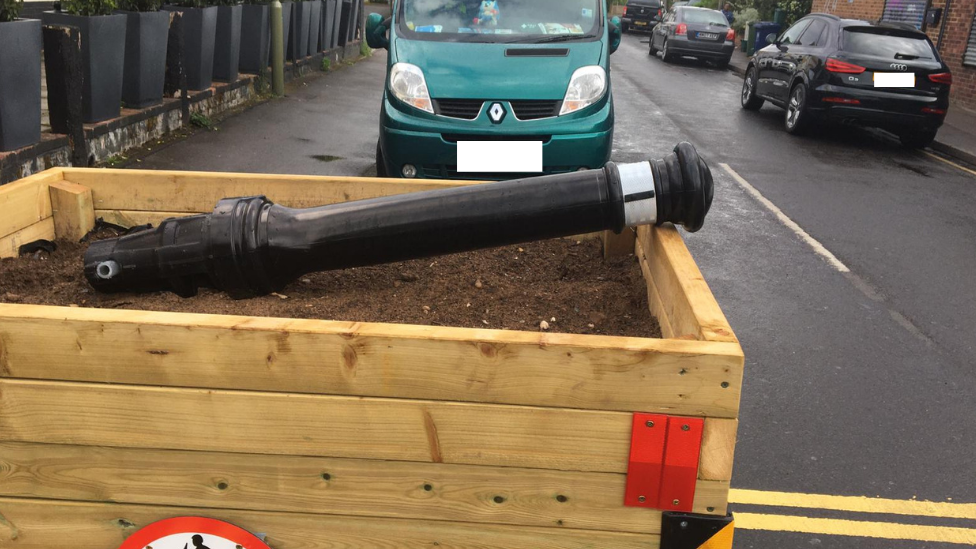London councils spend more than £850k fixing LTNs
- Published
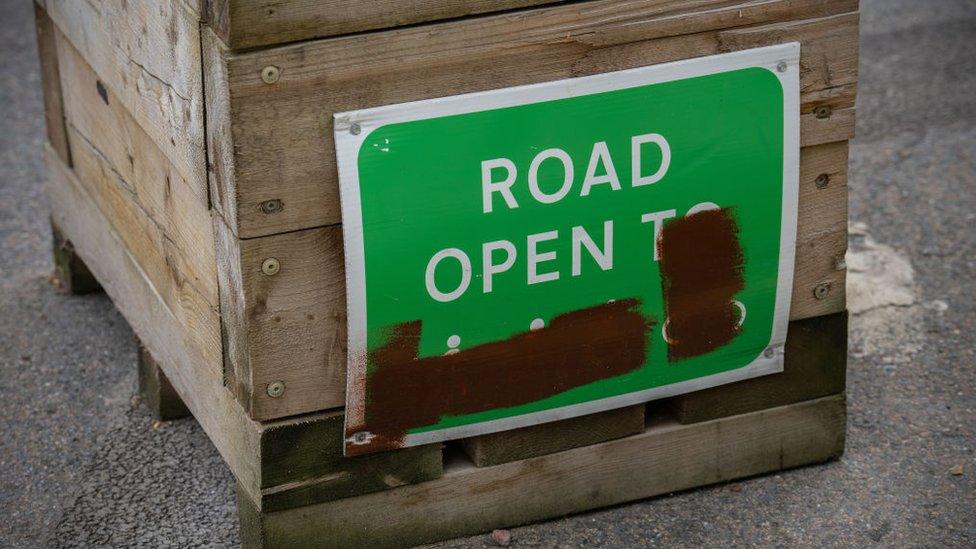
London Councils spent more than £850,000 fixing damaged LTN infrastructure
Fixing vandalised low-traffic neighbourhood (LTN) infrastructure has cost London councils more than £850,000.
Signs have been painted, bollards removed and cameras damaged in protest at measures designed to improve air quality.
The boroughs of Hackney and Lambeth had the biggest bills, according to data obtained by The Guardian., external
Hackney spent £399,361 and Lambeth £310,038 over a three-year period.
LTNs try to reduce motor traffic in residential areas by using either cameras, planters or lockable bollards.
Opponents of the schemes have criticised their effectiveness to improve air quality and claimed it creates more congestion in other places.
The first LTN was introduced by the London Borough of Hackney in 1974, following pressure from local people to limit through-traffic in the area and in 2020 there were about 100 LTNs in London.
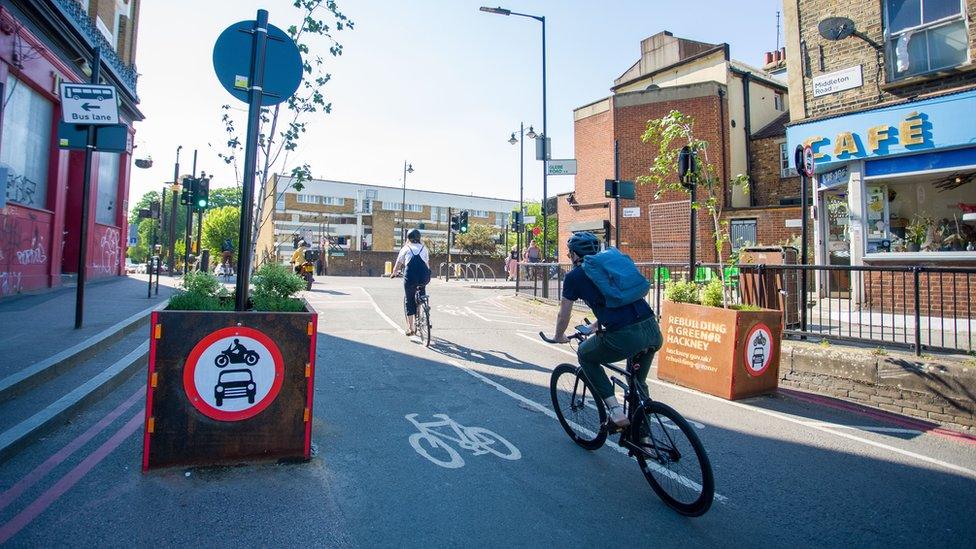
Hackney council plan to extend LTNs and ban motorised through-traffic from most roads
Eighteen boroughs did not provide figures to a Freedom of Information (FOI) request for the dates requested between 2020 and 2023, either because they do not have LTNs, they had not recorded vandalism linked specifically to the schemes, or could not collate the information.
Hackney council's cabinet member for environment and transport said he believes the vandalism comes from a small minority of people who are "not interested in the evidence about how these schemes are working".

Have you spotted vandalised LTN infrastructure? Send your images and video if it is safe to do so.
WhatsApp: +44 7756 165803, external
Tweet: @BBC_HaveYourSay, external
Please read our terms & conditions and privacy policy

Cllr Mete Coban said: "The evidence shows our LTNs and School Streets work, with traffic down, more people walking and cycling and children benefiting from being able to walk safely to school.
"A small minority of people continue to vandalise enforcement cameras, wasting hundreds of thousands of pounds that could be better spent on freedom passes for older people, introducing more cycle parking and road safety classes in schools," he added.
'Vandalism cannot be condoned'
"In addition to working with the police to identify those responsible, we are also trialling new types of camera and equipment that stops the vandalism, as well as CCTV surveillance of sites where this is happening."
Last month Prime Minister Rishi Sunak ordered a review of low traffic neighbourhoods in England, saying that he was on the side of drivers.
The Streatham Hill LTN in Lambeth is one that has provoked "a lot of strong feeling", the chair of Streatham Action Transport group, Neil Salt told the BBC, with further controversy predicted as plans for another LTN in central Streatham come into force in the autumn.
Despite this, he says, vandalism cannot be condoned.
Mr Salt said: "Given as to how mixed a reception Lambeth's LTN in Streatham Hill has received, it would not come as a surprise to hear that a significant amount of that cost may have been incurred with regard to the Streatham Hill LTN equipment infrastructure.
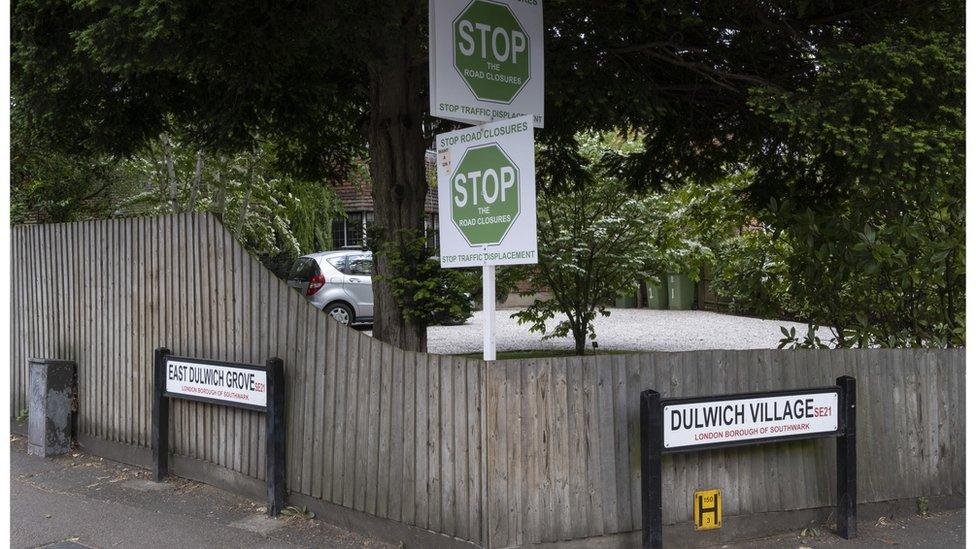
The LTN camera in Dulwich earned Southwark Council more than £5m in 12 months
"Whatever our views on LTNs may be, just as also on Ulez expansion, there can be no condoning of vandalising infrastructure equipment once put in place," he said.
"If any arguments are to be won against LTN decisions taken by local councils, those arguments must surely be won on the back of factual evidence and feedback by local residents through the proper channels.
"If we were ever to get to a point of needing to have CCTV surveillance of camera-enforced LTN road restrictions then surely that would be a very sorry state of affairs."
Related topics
- Published4 November 2022
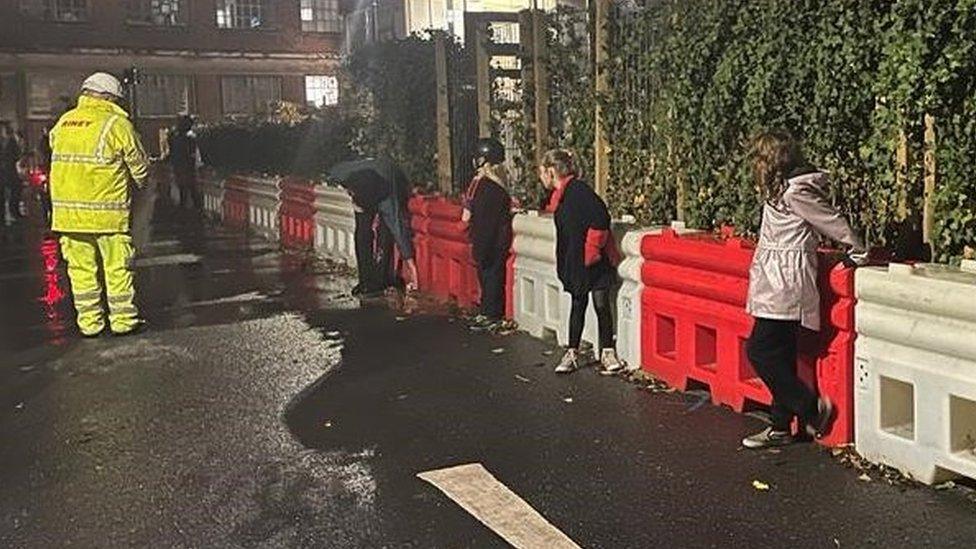
- Published16 November 2022
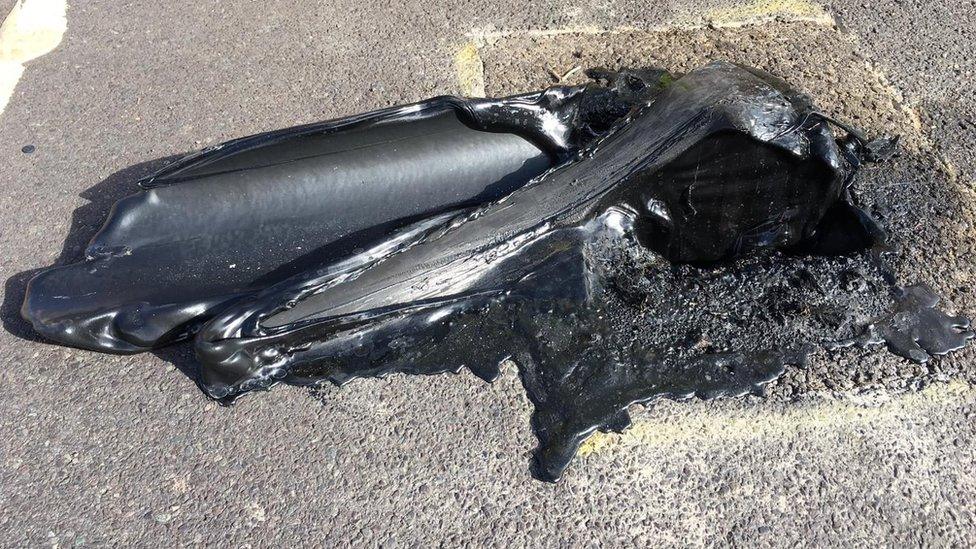
- Published13 June 2022
